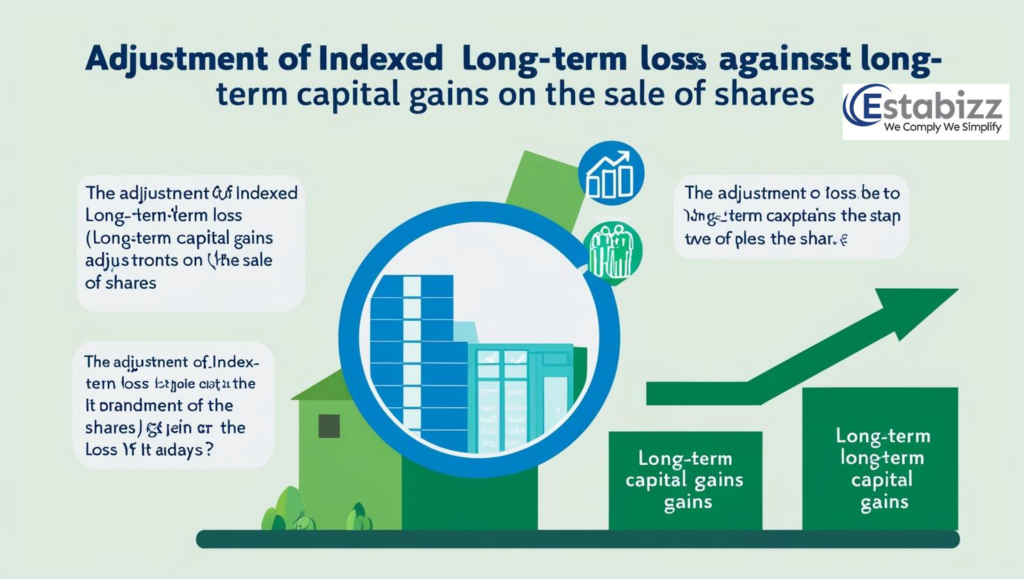Can I adjust indexed long-term loss against long-term capital gains on the sale of shares?
Yes, you can adjust indexed long-term capital losses against long-term capital gains on the sale of shares. Here’s how it works:
- Long-term capital gains refer to profits from the sale of assets held for more than one year, such as stocks or mutual funds.
- Long-term capital losses refer to losses incurred from the sale of assets held for more than one year.
- You can use long-term capital losses to offset long-term capital gains.
- Additionally, you can adjust long-term capital losses for inflation using an indexing method.
- Indexed long-term capital losses are adjusted for inflation to preserve their real value.
- The indexed long-term capital loss can be used to offset long-term capital gains, potentially reducing your tax liability.
To adjust indexed long-term losses against long-term capital gains, you will need to follow these steps:
- Calculate your long-term capital losses for the tax year.
- Apply the indexing factor provided by the tax authorities to adjust your long-term capital losses for inflation.
- Subtract the indexed long-term capital losses from your long-term capital gains.
- The remaining long-term capital gain, if any, will be subject to long-term capital gains tax.
It’s important to note that there are specific rules and limitations regarding the use of capital losses, and the indexing method may vary depending on your country or jurisdiction. It is recommended to consult with a tax professional or refer to the relevant tax regulations for your specific situation.
- A resident taxpayer sold a house for 1.25 crore after purchasing it for 1 crore. Due to changes in capital gains taxation, they will not owe tax on the house sale but will pay 12.50% on long-term gains from listed shares after the initial 1.25 lakh exemption.
-

Can I adjust indexed long-term loss against long-term capital gains on the sale of shares?
Regarding the set-off of losses under the head capital gains, short-term losses can be set off against any capital gains, including long-term or short-term capital gains. I am a resident individual taxpayer. I purchased a residential house for ₹1 crore a few years back. Now, I have sold the house for 1.25 crore in 2024. What would be my tax liability for the capital gains under the new scheme? The indexed long-term capital computed for the house is a loss, and I have long-term capital gains from the sale of listed equity shares. Can I set off the indexed long-term capital loss on the house against the long-term capital gains on the sale of listed equity shares and pay tax on the balance of long-term capital gains?
The budget presented on 23rd July 2024 has drastically changed the long-term capital gains taxation scheme. The benefit of indexation has been removed for the computation of long-term capital gains except for payment of tax on long-term capital gains arising on the sale of land or building by a resident individual or an HUF.
So, an individual and HUF have the two options for tax payment on long-term capital gains arising from the sale of land or building acquired before 23rd July 2024. So, in such a case, the individual or the HUF can pay to lower the tax payable either at 20% on indexed long-term capital gains or @ 12.50% on unindexed long-term capital gains. Since the indexation results in long-term capital loss, you will not have any liability to pay the tax in respect of thesale of your house.
Tax Implications of Selling Residential Property Under New Capital Gains Rules
As far as the set-off of losses under the head capital gains is concerned, short-term losses can be set off against any capital gains, including long-term capital gains or short-term capital gains. In contrast,long-term capital losses can only be set off against long-term capital gains.
On a plain reading of the provisions, you can infer that one can set off the indexed long-term capital loss on the sale of your house against the long-term capital gains against long-term capital gains from listed shares, but this is not so. The benefit of indexation is available only for the limited purpose of computation of tax liability in respect of long-term capital gains arising from the sale of land or building of an individual or a HUF acquired by a HUF. Still, it is not available for the purpose of computation of long-term capital gains for other purposes like claiming exemption under Section 54 or 54EC or setting off long-term losses from one asset against another asset.
So, though your tax liability in respect of the sale of your house property will be nil, for the long-term capital gains on the sale of listed shares, you will have to pay tax at a flat rate of 12.50% after the initial 1.25 lakh, on which zero rate of tax is to be applied without any adjustment for indexed long-term capital gains on the sale of your house property.
Disclaimer
The insights and information provided by Estabizz Fintech Private Limited are for general informational purposes only and should not be interpreted as financial, investment, or legal advice. While we strive for accuracy and relevance, we recommend consulting with our qualified professionals for advice tailored to your specific circumstances. Estabizz Fintech disclaims any liability for actions taken based on this content. For further guidance, please contact our team of experts.Empowering your financial success with global expertise and unwavering dedication.
Estabizz Fintech Private Limited




